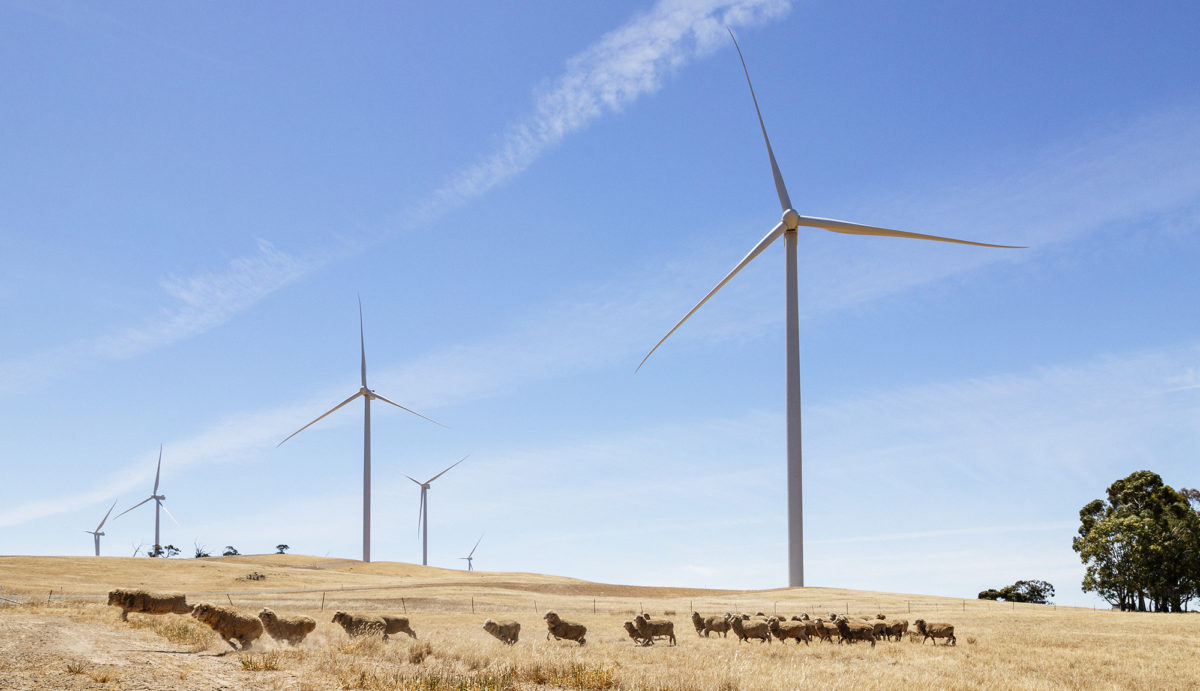The future of renewables is a combination of large-scale assets, some of which are co-located. At least, that can be inferred in markets such as Australia where developer Neoen is continuing to develop a mix of big wind, PV, and batteries in states that put in place favorable enabling policies such as Renewable Energy Zones.
Victoria, in Australia’s southeast, is one such state that is seeing large scale renewables racing ahead. The French independent power producer (IPP) and project developer Neoen has developed a series of big projects there, with its capacity reaching 652MW with the completion of the Bulgana Green Power Hub today.
The Buglana project sees a 20MW/34MWh battery system installed alongside a 204MW wind installation. The project is set to generate 750,000MWh of renewable energy annually. Tesla supplied the battery system and the project came at a price tag of AU$350 million (US$253 million).
On completing the project, Neoen Australia Managing Director Louis de Sambucy described its development and grid connection as having been a “long and challenging process,” and one that he was “proud of having overcome it” – likely due in part to the Australian regulator’s strict requirements for renewable projects’ operation.
Construction on Bulgana began in 2018, with the project scheduled to be completed by August 2019. The delay of more than two years in its commissioning was a major headache for Neoen and the project has faced numerous hurdles including the bankruptcy of the slated 15% offtaker Nectar Farms. It will now sell 100% of its output onto Australia’s National Electricity Market.
In a statement, the chairman of Neoen’s global business, Xavier Barbaro, noted that the company is the leading renewable developer in the country. “We are convinced of the value that hybrid assets such as Bulgana Green Power Hub can bring to the market in Australia and globally, and we are proud of our fast-growing expertise in delivering such complex solutions.”
Neoen has constructed and operates the 128MW Numurkah Solar Farm and the Victorian Big Battery(300MW/450MWh) in the state – the latter project having generated headlines in August after two of its Tesla Powerpacks caught fire during the commissioning process earlier this year.
Popular content
Victoria enables renewables
The state of Victoria is currently governed by the center-left Andrews Labor Government. It supported the Bulgana project with a 15-year Support Agreement, the details of which have not been made public, and has put in place a series of subsidies and supportive projects for distributed solar and battery storage. It has a renewable energy target of 50% by 2030.
By contrast, Australia’s conservative coalition federal government has a record of being a laggard on enabling renewables if not outright hostile to them – with policies including the scrapping of the country’s price on carbon emissions in 2014 and unsuccessful attempts to abolish its renewables agency, ARENA, and green finance body, the CEFC.
The outcome of the Victorian state government’s policies has been clear, with the state claiming to be the leader nationally for its increase in renewable energy generation in 2021. Renewable generation in Victoria growing by 3.2TWh in 2021, up from an increase of 2.2TWh from 2019 to 2020.
“We are also proud to achieve Australia’s largest ever annual increase in renewable power, a testament to Victoria’s leadership on clean energy and climate change,” said the state’s energy, environment and climate change minister Lily D’Ambrosio, in a statement. “The Bulgana Green Power Hub is another giant step towards Victoria becoming the renewable energy capital of Australia and achieving our target to halve our emissions by 2030.”
Victoria currently claims a renewable energy share of 32.4% at the end of 2021, up from 26.6% in 2020 and 22.7% in 2019.
This content is protected by copyright and may not be reused. If you want to cooperate with us and would like to reuse some of our content, please contact: editors@pv-magazine.com.



By submitting this form you agree to pv magazine using your data for the purposes of publishing your comment.
Your personal data will only be disclosed or otherwise transmitted to third parties for the purposes of spam filtering or if this is necessary for technical maintenance of the website. Any other transfer to third parties will not take place unless this is justified on the basis of applicable data protection regulations or if pv magazine is legally obliged to do so.
You may revoke this consent at any time with effect for the future, in which case your personal data will be deleted immediately. Otherwise, your data will be deleted if pv magazine has processed your request or the purpose of data storage is fulfilled.
Further information on data privacy can be found in our Data Protection Policy.